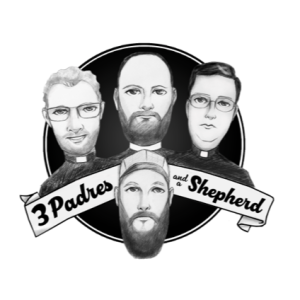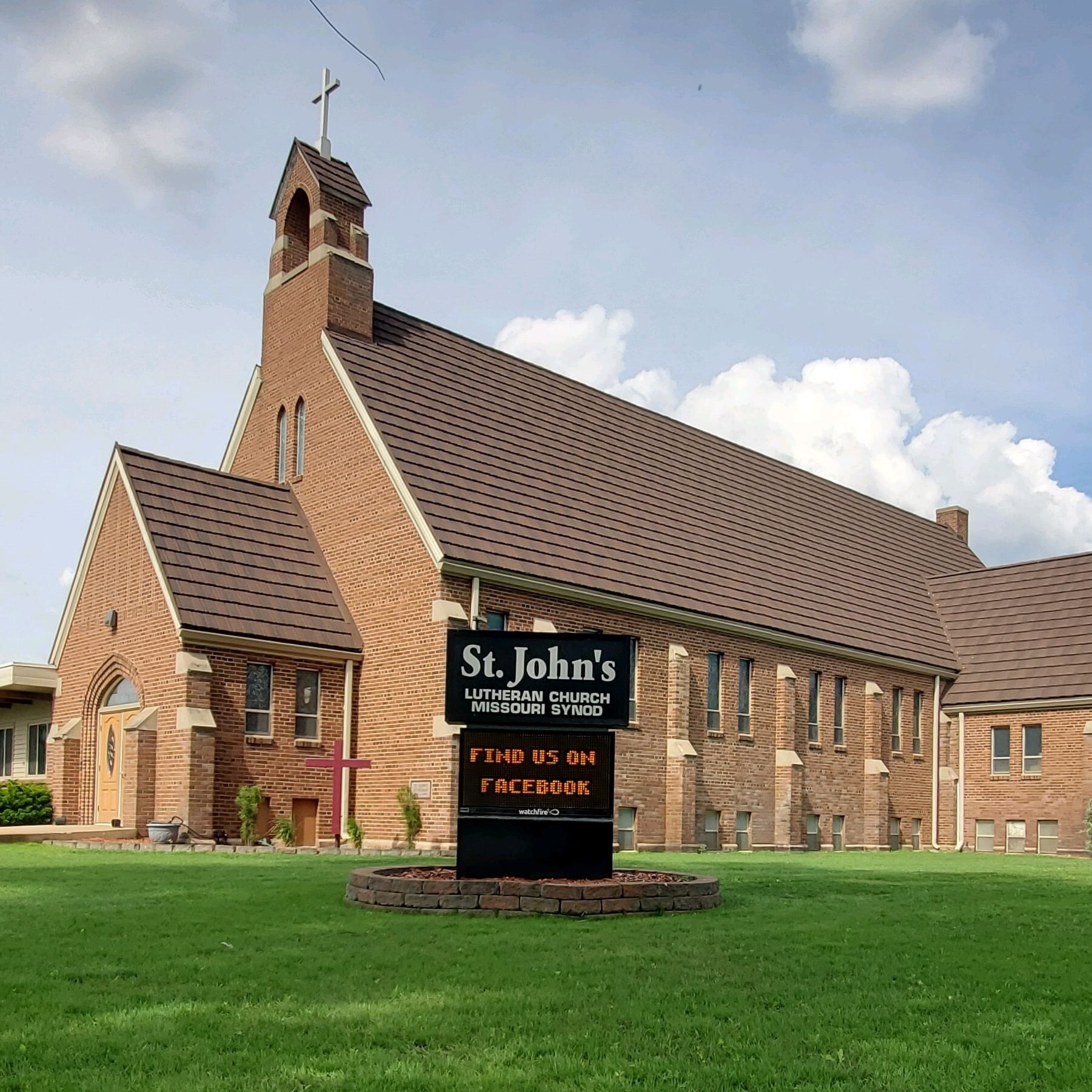Episodes

3 hours ago
3 hours ago
There is a question that Christians often hesitate to ask out loud, but many quietly carry in their hearts: If God loves everyone, why are some people not saved? Or perhaps you have asked it this way: If God loves everyone, why is there a hell at all?
Scripture is clear about certain things. God “desires all people to be saved and to come to the knowledge of the truth.” Christ died for the sins of the whole world. The Gospel, the means by which God brings sinners to salvation, is preached widely and freely. And yet, not all are saved. Some hear the Word and fall away. Others never believe at all.
This is not only something Scripture teaches; our Lord Himself speaks of the outer darkness. It is also something we encounter in life. We know people who respond to Christ with open contempt, and others who meet Him with a militant indifference. The Word of God describes reality as it truly is.
Our Lord’s Parable of the Sower confronts this question directly. And it does so in a way that strips away false comfort, exposes dangerous assumptions, and finally leads us to the only place where real and lasting comfort can be found.

6 hours ago
6 hours ago
Today is a feast set aside to remember how Mary and Joseph brought the infant Jesus to the Temple in Jerusalem. The Law of God in Exodus 13:2 commands that every firstborn male be consecrated to the Lord. Further, Leviticus 12:1-8 commands that a woman after childbirth go through a period of purification for forty days and then offer a sacrifice of either a lamb or two turtledoves is a lamb was too expensive.
While is it important to know that the earthly parents of the Lord Jesus were pious, godly people, we see in this act of obedience far more than a ritual being fulfilled. We see the eternal Son of God taking His place under the Law, entering our human condition fully. Today’s text from Hebrews reminds us why this matters: Christ comes not only to live among us but to save us. He comes to take our place, to bear our burdens, and to make us holy in God’s sight.

Tuesday Feb 03, 2026
Tuesday Feb 03, 2026
Most of us learn very early in life a simple rule: you get what you earn. If you work harder, you deserve more. If you show up earlier, you should be paid more. If you sacrifice more, you ought to be rewarded accordingly. That principle governs almost everything in our lives. It governs our jobs, our schools, our farms and businesses, our reputations, and even, if we are honest, how we instinctively think God should operate.
And because that rule is so deeply ingrained in us, Jesus’s parable this morning does not merely surprise us. It offends us. A landowner hired laborers throughout the day. Some are hired at dawn, some mid-morning, some in the afternoon, and some with barely an hour of work left. At the end of the day, he pays them all the same wage. And Jesus does not tell this story to illustrate injustice. He tells it to describe the kingdom of heaven.
And that is the problem. Because this parable exposes the fact that we often want God’s kingdom to operate like the kingdoms of this world. And when it does not, when grace is given freely and equally, something in us begins to grumble.

Tuesday Feb 03, 2026
Tuesday Feb 03, 2026
We live in a world of denominations - every city in America has a lot of churches, many claiming to be the best church in town - the gold standard for Christianity. However, there are other churches that may be a bit more humble, admitting that they don't have it all together, but are striving to reach back to the church's Golden Age. All of this begs the question - is there such thing as a perfect church... a perfect Golden Age of the Church, where the church ran smoothly and members practiced Christianity without flaw? Join us in today's episode of 3 Padres and a Shepherd, as we cover the theme of: The Church's Golden Age: Facet, Fiction, or Fantasy!

Sunday Jan 25, 2026
Sunday Jan 25, 2026
The Transfiguration of our Lord confronts us with a basic and unavoidable question: Can God actually be known? Not speculated about, not felt toward, not vaguely sensed, but known.
Much of present-day spirituality answers that question with hesitation. God, we are told, is ultimately mysterious, perhaps even unknowable. Truth is said to be relative, especially about God and religious things. Religious claims are treated as personal expressions of opinion rather than statements about reality. God, if He exists at all, is distant, certainly not the sort of God who speaks clearly or acts decisively in history or Who is present with His people.
The Transfiguration stands directly against that spirit. On the holy mountain, Jesus does not become less accessible or more abstract. He becomes clearer. Brighter. More definite. And the Apostle Peter insists that this was not a subjective religious experience, but a real event, witnessed, heard, and testified.
That is why he writes: “We did not follow cleverly devised myths … but we were eyewitnesses of His majesty.” The Transfiguration reveals that Christ is knowable, objective, and present.

Wednesday Jan 21, 2026
Wednesday Jan 21, 2026
Marriage is a gift from God. It is not an invention of human culture. It is not a contract devised merely for mutual convenience. It is a blessing woven into creation itself. Before sin, before death, before shame, God gave man and woman to one another. And ever since, marriage has remained one of the primary places where God chooses to bless His creatures with His presence, His provision, and His mercy.
That is what today’s readings set before us: a God who dwells with His people, a God who orders their life together in love, and a God who sanctifies marriage by His own gracious presence.

Tuesday Jan 13, 2026
Tuesday Jan 13, 2026
At first glance, Baptism can appear to be a very ordinary thing. A little water. A few words. A pastor’s hand. A crying infant or a wet adult. Nothing flashy. Nothing impressive. Nothing that looks particularly powerful. And yet, Scripture insists that something enormous is happening.
Today’s readings all press the same point from different angles: God does His saving work through humble means, so that faith rests not in us, but in Him alone. And this central truth is clearly seen in Holy Baptism.

Tuesday Jan 13, 2026
Tuesday Jan 13, 2026
Today is a momentous occasion. Travis and Tiffany are vowing themselves to each other and thereby entering into God’s estate of holy matrimony. That is to say, they are getting married. And this is a good and God-pleasing thing. God delights in marriage.
The first social institution God created was marriage; it even predates the fall into sin, as our reading from Genesis chapter 2 reminds us. Our Lord Jesus, who is Himself God in the flesh, worked His first miracle in support of a wedding feast in Cana. And throughout the Scriptures, marriage is spoken of in reverent and joyful tones.
All of this is to say something rather simple: God delights when people receive and enjoy His good gifts. This is, in fact, His preferred way of dealing with us. He does not demand that we climb our way up to Him; rather, He relates to us by giving His good gifts freely. Today, we focus on one of those gifts: marriage.

Monday Jan 12, 2026
Monday Jan 12, 2026
Epiphany is a festival of revelation. It is the Church’s celebration that the child born in Bethlehem is not only the Savior of Israel, but the Savior of the nations, even the Light for the Gentiles. And this was not some unexpected revealing, no it is exactly what the prophet Isaiah proclaimed over five hundred years before: “Arise, shine, for your light has come, and the glory of the LORD has risen upon you.”
That light is Christ Himself. And today, in the visit of the Magi, we see that light drawing the nations to Him.
Find out more in this sermon from St. John's Lutheran Church of Oakes, ND!

Wednesday Jan 07, 2026
Wednesday Jan 07, 2026
Can we decide to follow Jesus? Is it that easy for the will to flip a switch and choose to follow Christ? Or, is it a bit more complicated than this? Join us in this episode titled, "Your Will Can't Save You."
Subscribe, Watch, & Share:
www.3p1s.com








